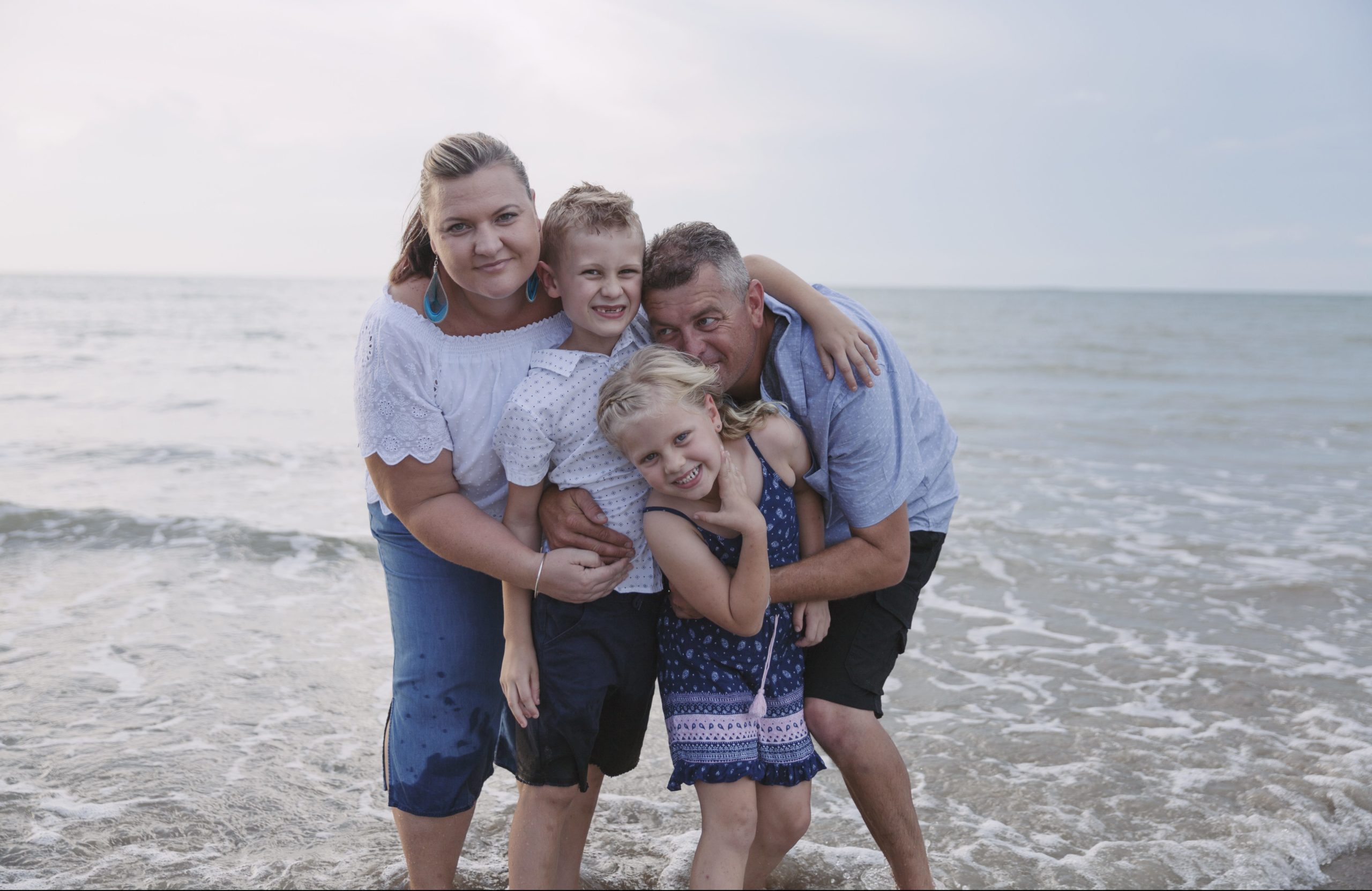Jeanette takes nothing for granted
Darwin mother-of-two Jeanette Kingston, 41, never takes a single day for granted.
When she was diagnosed with a blood cancer called multiple myeloma on August 14, 2018 she thought death was knocking at her door. With two young children, Brayden, nine, and seven-year-old Tahlia, Jeanette made up her mind to fight for her life.
With husband Matthew by her side, she won the first round, taking on chemotherapy at the Darwin Hospital before being sent to Adelaide for an autologous stem cell transplant. Right from the start she knew she’d be faced with a second with specialists advising back to back transplants would give her the best chance of a cancer free future.
Stem cell transplant
“The biggest thing I have learned from it all is that before cancer, I just took life for granted,” Jeanette said.
“But I quickly learned tomorrow isn’t promised. The biggest blessing is now – I don’t take anything for granted. I have young kids, I want to be around as long as I can.”
Jeanette will be undertaking her second stem cell transplant during May – Myeloma Awareness Month.
Jeanette first began experiencing flu like symptoms after an overseas trip home to Denmark. She thought she had picked up the typical bug on the plane. But – days later she still wasn’t feeling better. In fact her symptoms were getting worse. She went to the doctor but at first, they didn’t suspect anything too menacing.
Cancer blood test
When she woke with her heart racing a few nights later – once again a doctor’s visit didn’t awaken any suspicions. Her blood counts were a bit low. The ECG was normal. But a few days later, Jeanette could barely get out of bed. On August 7 she was taken to hospital, and blood tests revealed she had “some kind of cancer”.
“The doctor explained my chances were a bit like rolling a six-sided dice – five out of the six sides would mean I had some kind of cancer.” The sixth option was that it wasn’t cancer but some kind of false indication. “Unfortunately I didn’t roll a six,” Jeanette said. “I was diagnosed with myeloma on August 14.”
Like many people, she first thought her diagnosis was melanoma. She had never heard of myeloma. She then undertook a treatment regime of tablets and intravenous chemotherapy, but was told her best chance of long term survival were back to back, autologous stem cell transplants (the second to be undertaken in May 2019).
Cancer diagnosis
Jeanette explains her cancer diagnosis has changed her perspective on life. She went to a psychologist to help her gain a more positive mindset. In fact, the whole family went to see a psychologist. She said this was an important part of her journey. Having a strong mindset helped her to cope with the uncertainty of the diagnosis, and to realise she could beat the disease.
“It gave me a kick in the butt,” she said. “We live life a little differently. We live a different type of ‘normal’, but we know I am lucky to still be here to live it.”
“That’s been the biggest blessing. Now, we don’t take anything for granted. We live in the moment and enjoy what we’ve got.”
CAR-T cell therapy
Jeanette and her family are busy making plans for the future and ticking things off the bucket list. They are hoping to have a family holiday in Queensland and Jeanette is hoping to rejoin her friends for her annual Bali escape in December – which she missed in 2018 due to her diagnosis.
She is interested in the breakthroughs happening in blood cancer treatment including immunology and CAR-T cell therapy and is optimistic about her future should she relapse at any time – knowing that medicine is progressing and is on her side.
“We take it day by day and make the most of it.”
Last updated on February 24th, 2022
Developed by the Leukaemia Foundation in consultation with people living with a blood cancer, Leukaemia Foundation support staff, haematology nursing staff and/or Australian clinical haematologists. This content is provided for information purposes only and we urge you to always seek advice from a registered health care professional for diagnosis, treatment and answers to your medical questions, including the suitability of a particular therapy, service, product or treatment in your circumstances. The Leukaemia Foundation shall not bear any liability for any person relying on the materials contained on this website.